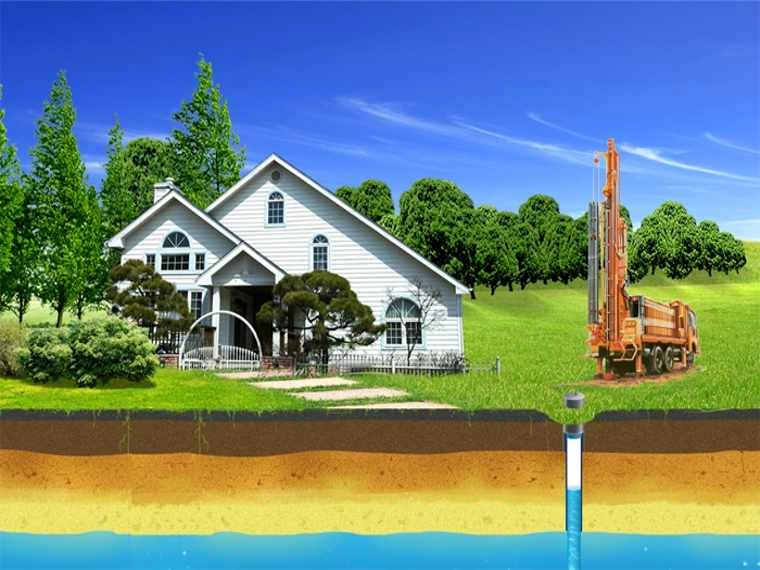Water well drilling
are suitable for both domestic and commercial purposes. They are widely used for private residential buildings, grass and vegetable gardens, greenhouses, farms and many others. They are built for all sites with low water pressure, low flow rate, in the absence of water and a dry borehole or well. The service is also applicable for geothermal heating or cooling.
In order to determine a suitable location for the construction of a water well, geological surveys can be carried out. These surveys can be done using ground-penetrating radar or exploratory boreholes. In this way, the geological data is collected to prepare an analysis. Fortunately, Bulgaria is a country where atresia waters are almost everywhere. Depending on the structure of the soil, the type of drilling is determined. There are two types of drilling technologies. One is done using an air compressor and the other is a mud pump that works with high pressure water. Borehole diameter and depth are specified after the mentioned field search.
Once suitable locations are determined, the construction of water wells begins. Preparing the right equipment and machinery for the counter-property. If the space is small or difficult to access, facilities are provided to cope with walking in the terrain and positioning the designated point. The process always starts with drilling a hole in the earth's crust. For quality drilling, it is recommended to drill down a few more meters after reaching the aquifer. It is done in this way so that the particles of sand and other sediments carried by the water fall to the bottom. This level is called the dead level or also sediment
After the desired depths are reached, a column of price pipes, which are called casings, is placed in the hole. usually the casing pipes for PVC, which are made with filter segments. In very rare cases, the pipes have to be metal. This casing prevents the borehole walls from collapsing earth masses and also allows water to enter the borehole.
After the borehole is built, a submersible pump is lowered to purify the water from sediments. Water pressure and flow can be measured. At the customer's request, a laboratory analysis of the resulting water, the so-called chemical analysis, can also be carried out to determine whether it is suitable and safe for consumption or other purposes.
Once the borehole has been tested and approved, it can be connected to the property's water mains. To ensure an efficient water supply, water can be captured. The borehole pump is lowered and used to extract water from the underground source and to pump the water to reservoirs where it can be stored and distributed to the required endpoints. Borehole pumps can be automated and run continuously to ensure a continuous supply of water.
Two of the main reasons that boreholes have a major advantage over municipal water supply are that they have lower costs and cleaner water. The reason for lower bills for borehole water is that it does not use as much energy and resources as tap water, which is transported from long distances. Water wells can also provide cleaner water, as there is no need to add treatment chemicals.
Water wells can provide an efficient water supply for the home and for large sites. The investment that is made for a water well is certainly justified and has a short payback period. With the help of the right technologies in construction, with the right operation, as well as with the periodicity of drilling, it is an extremely reliable water source for many years and provides users with clean water that can be sent for cleaning.

